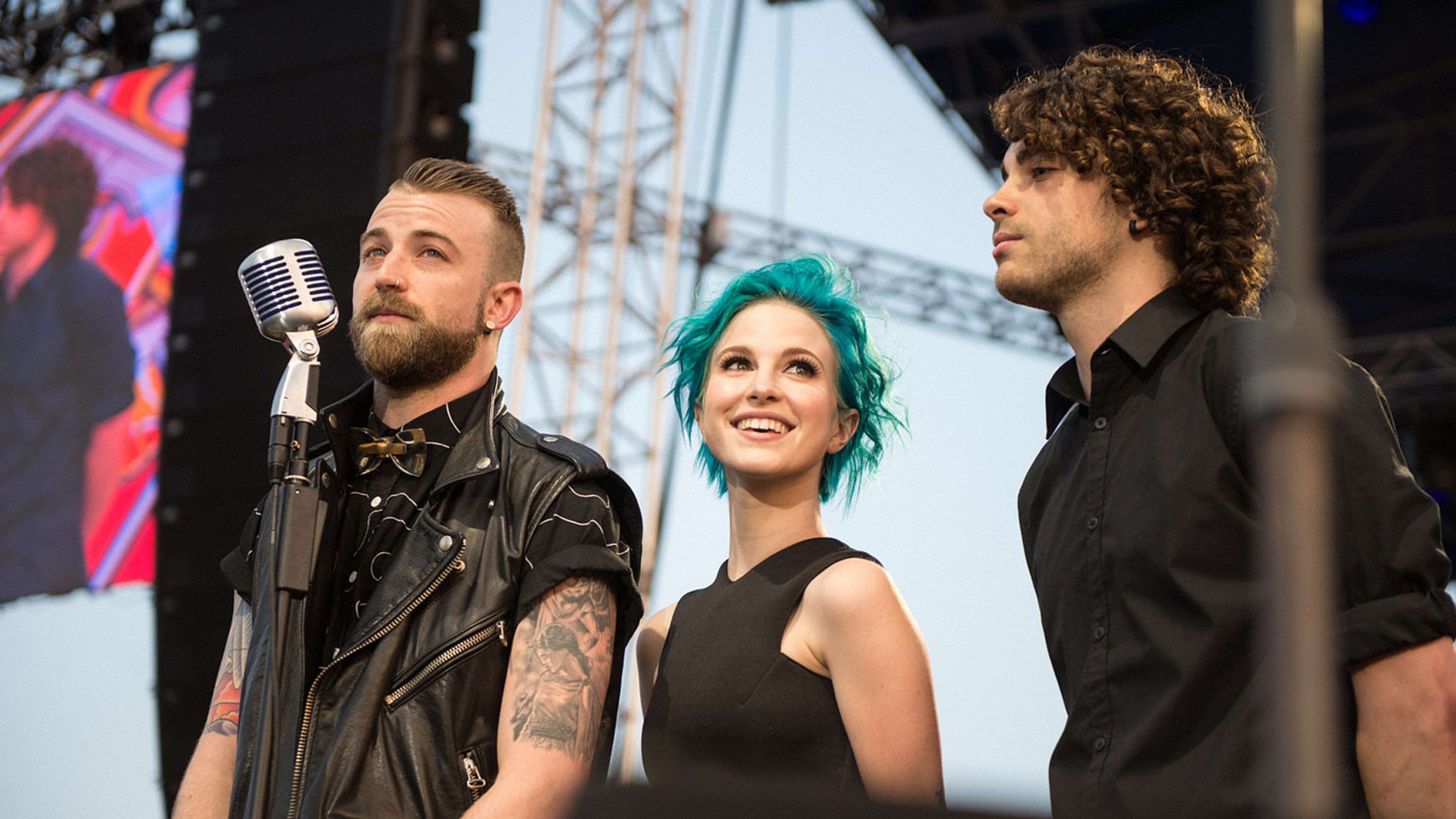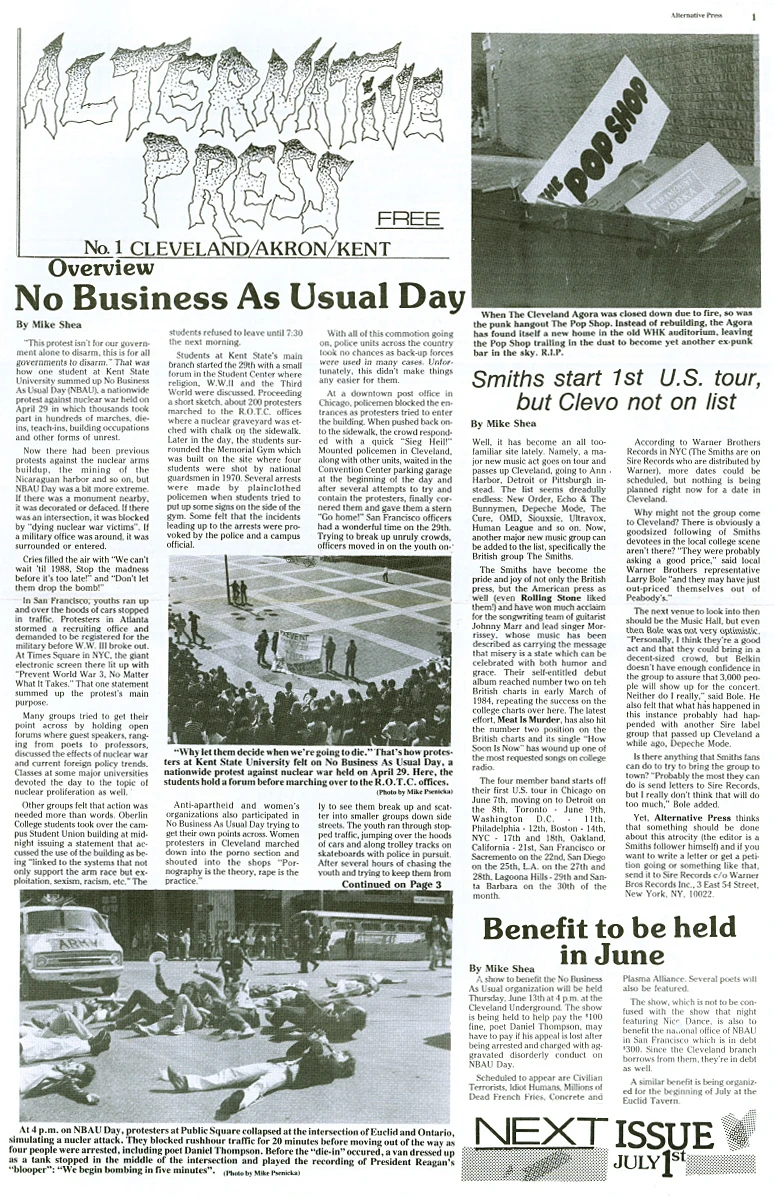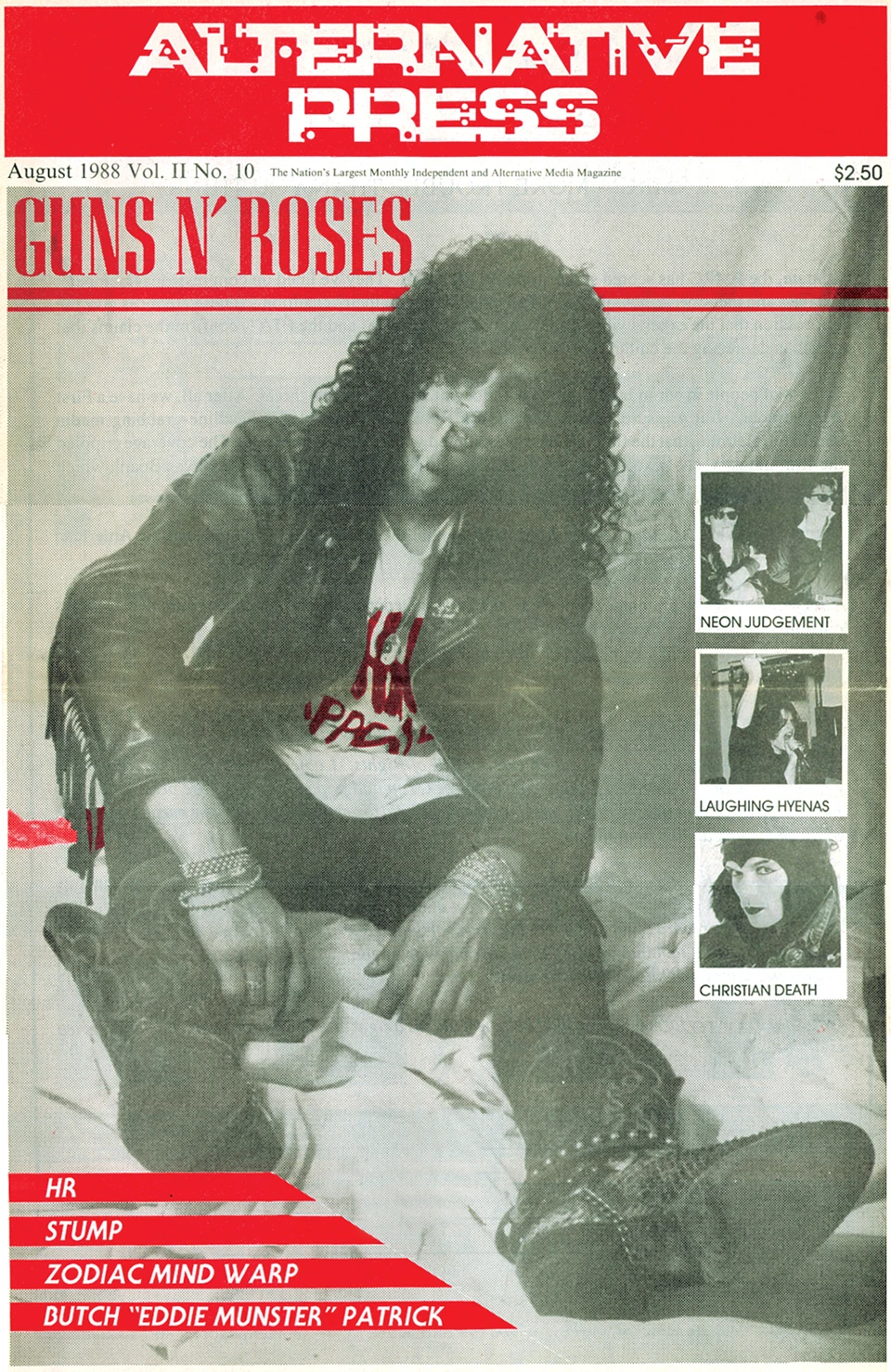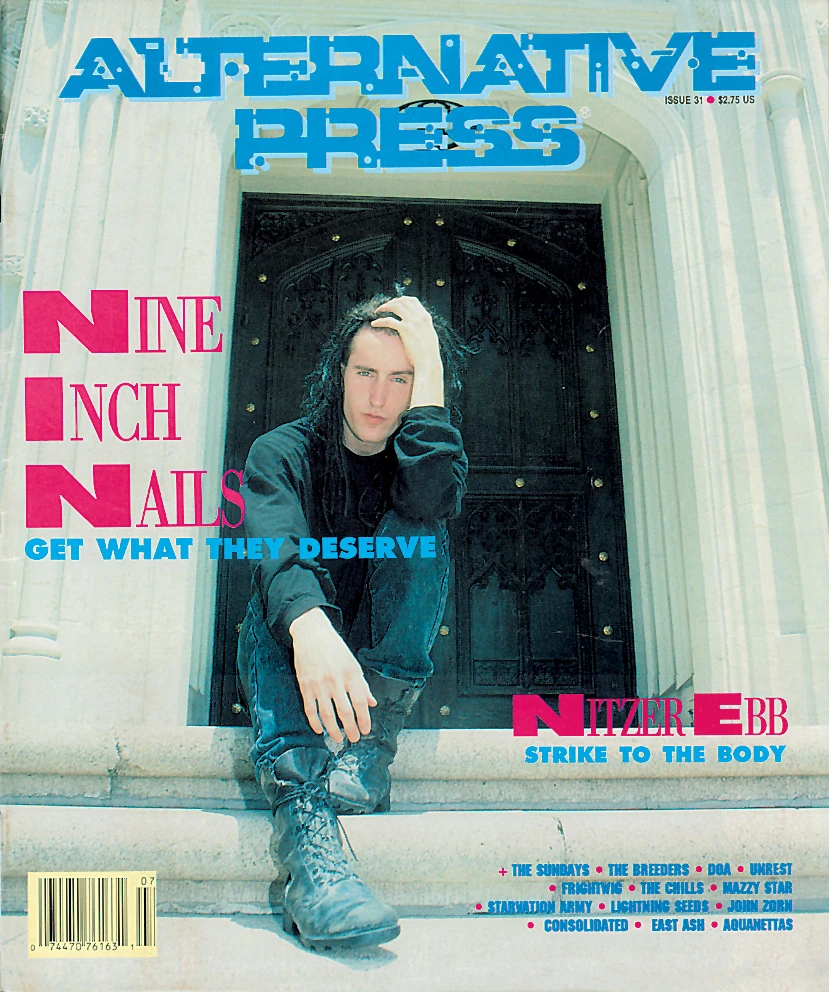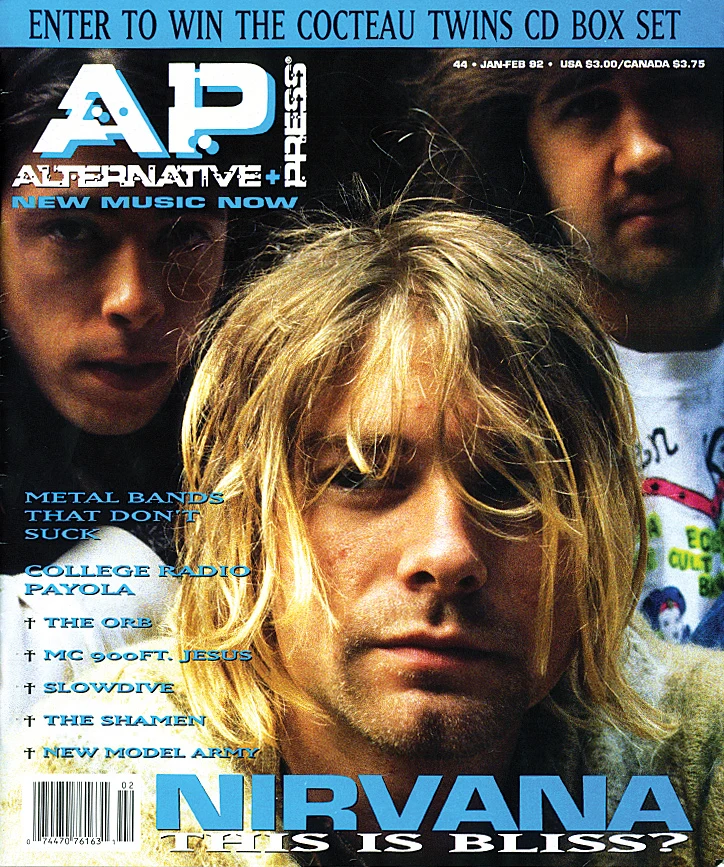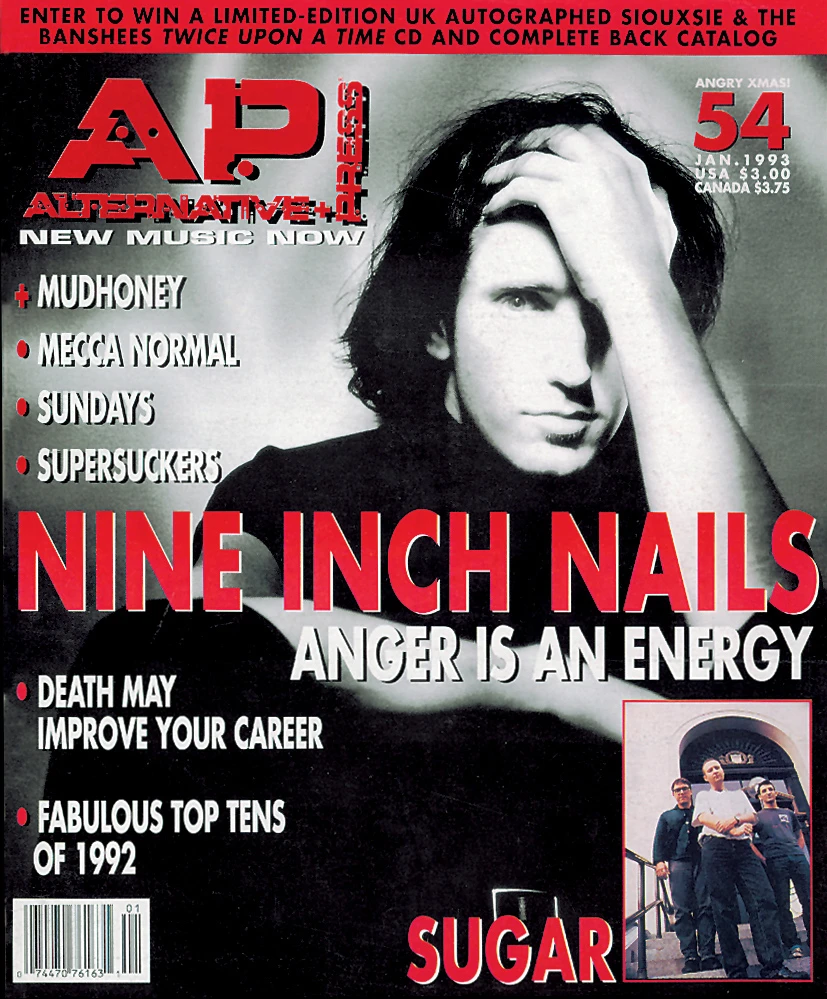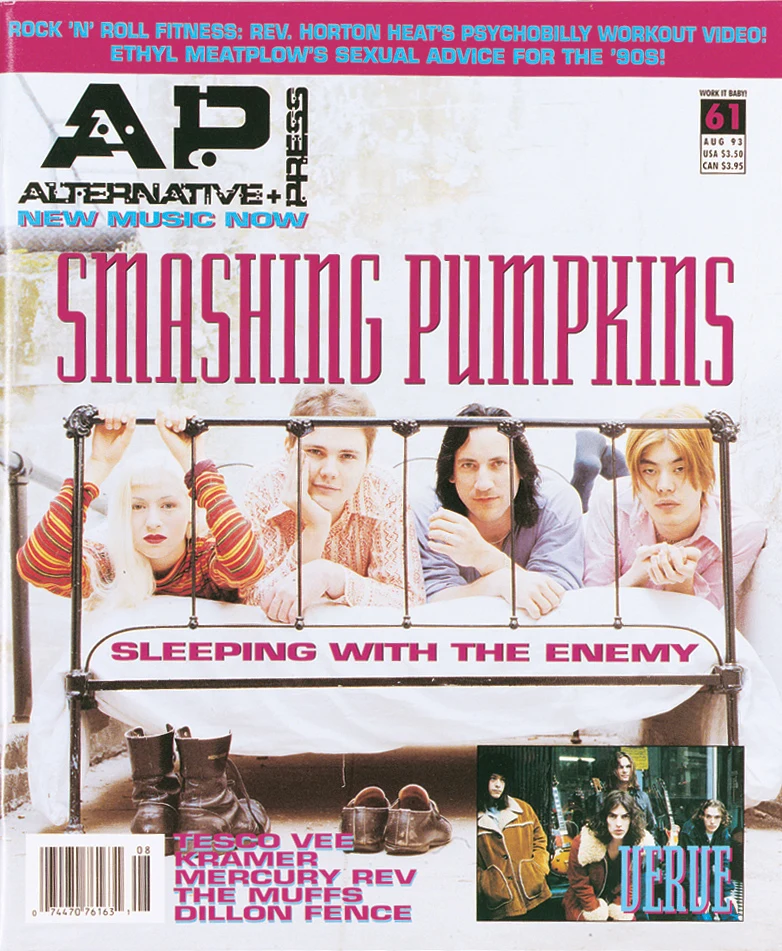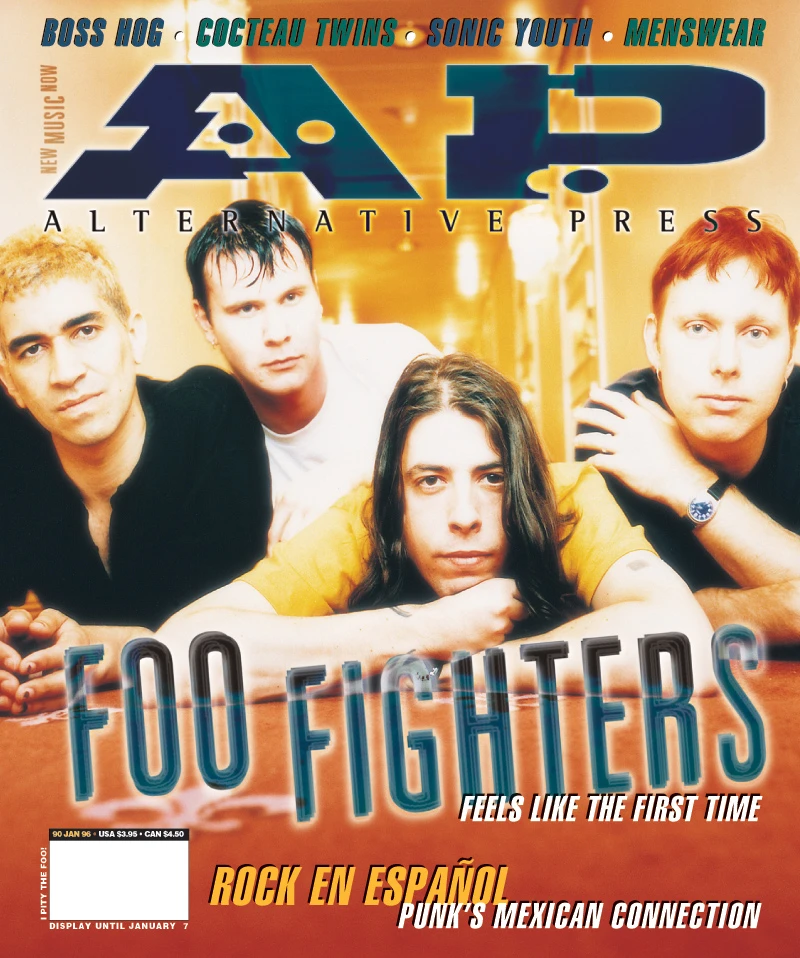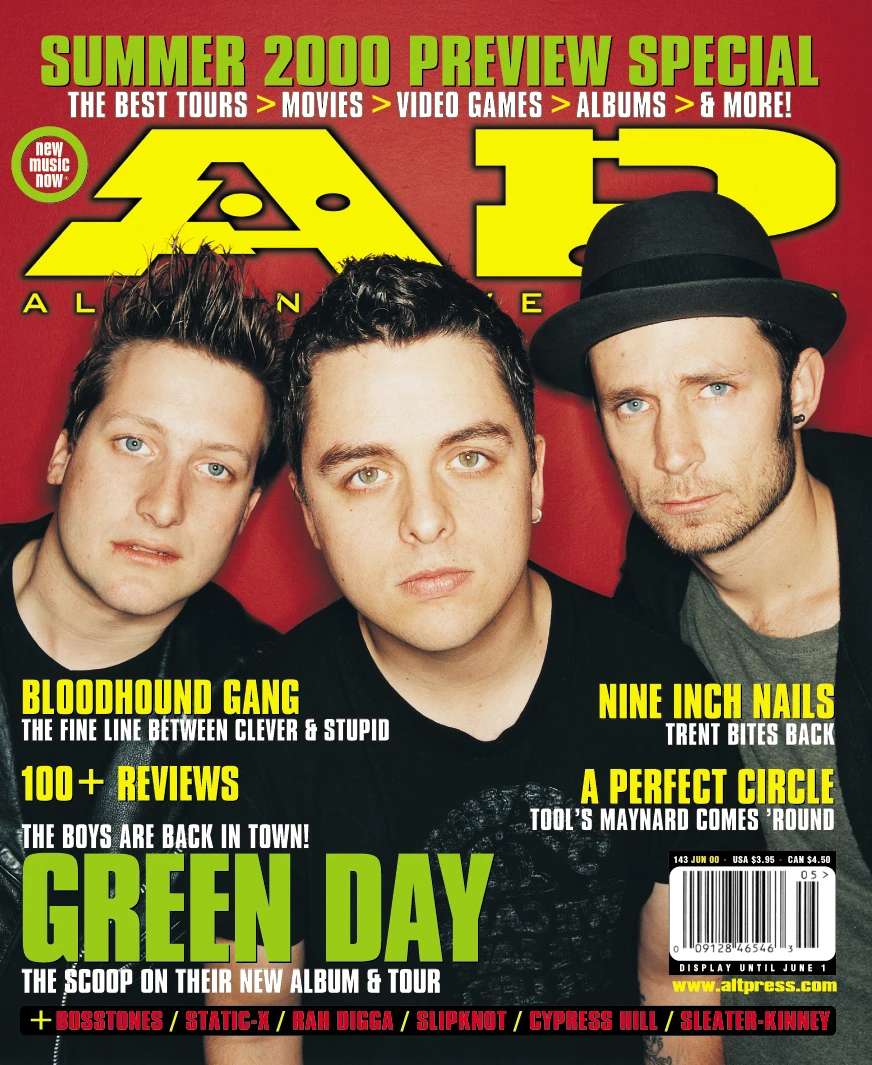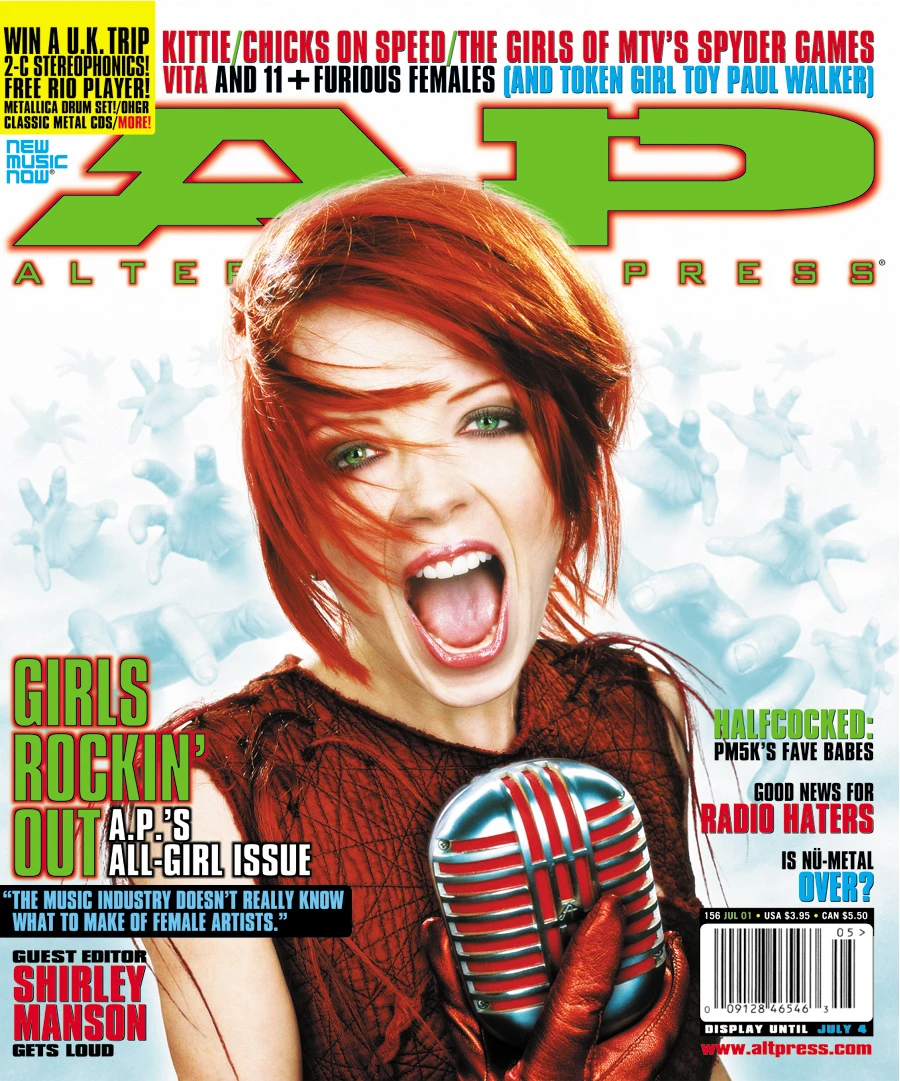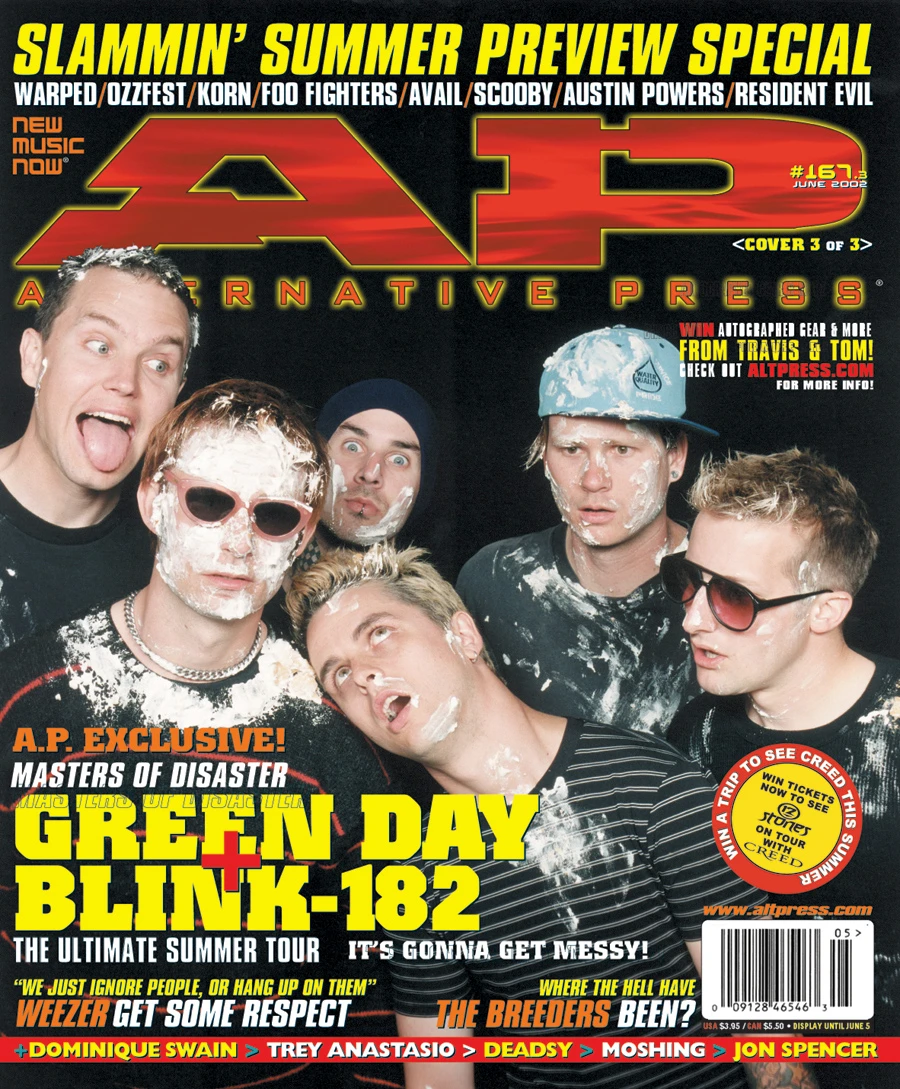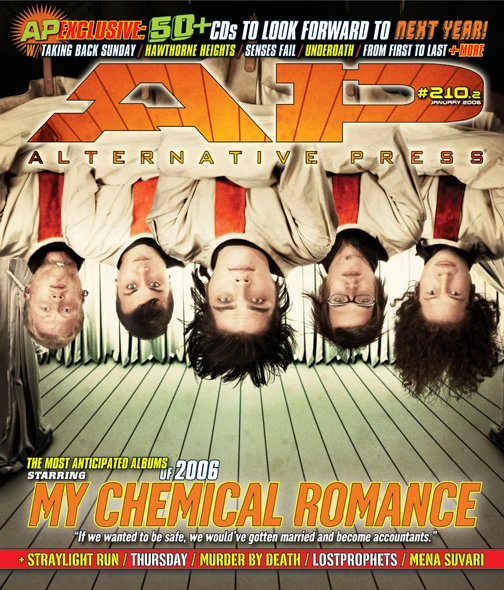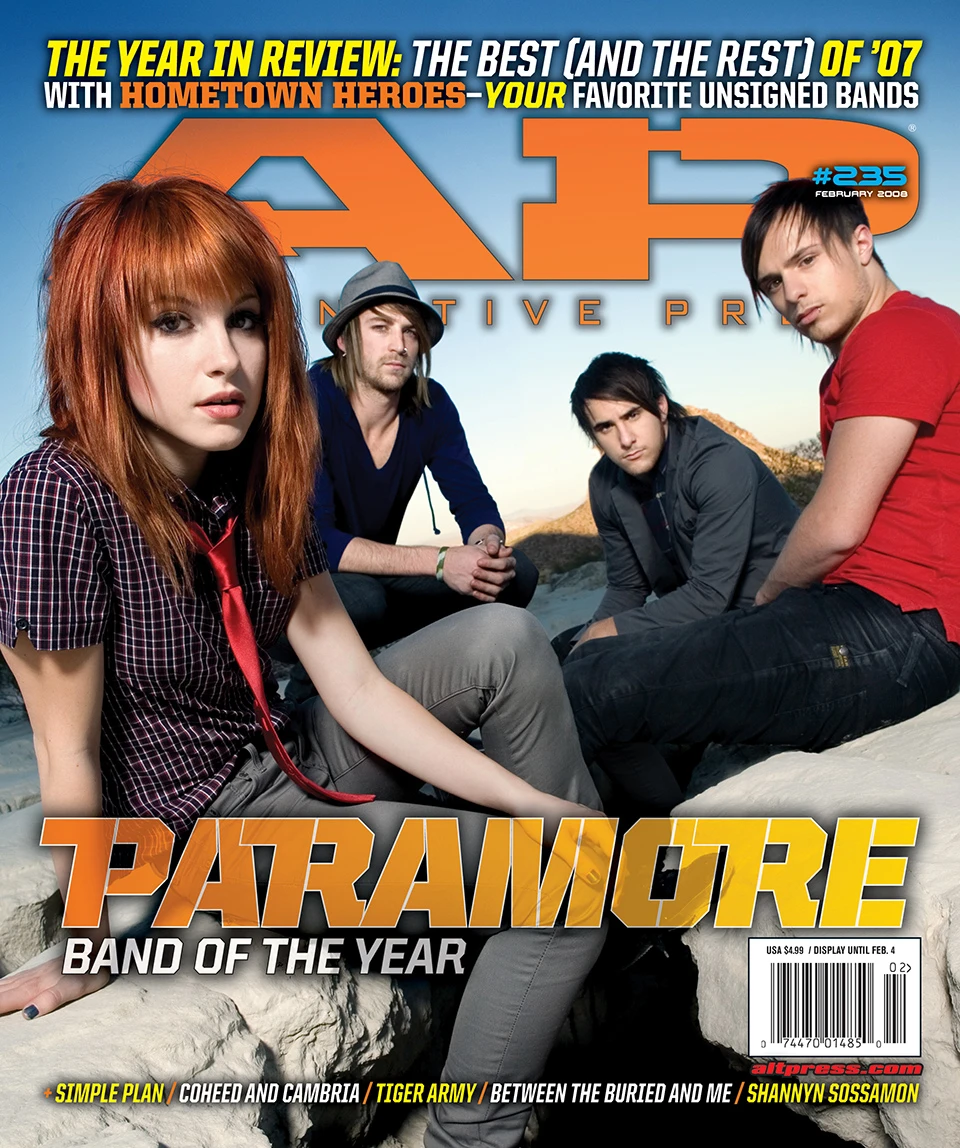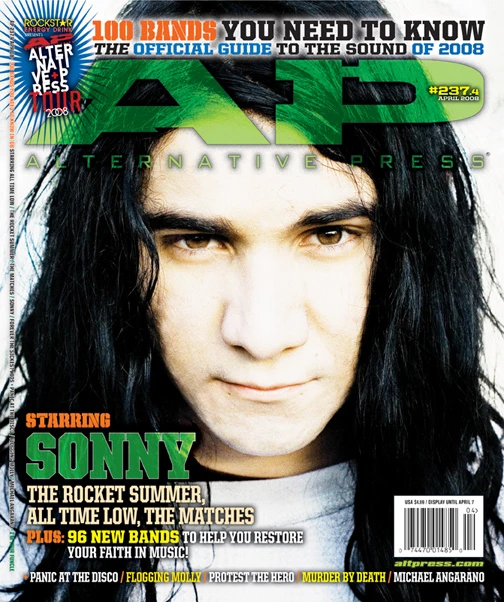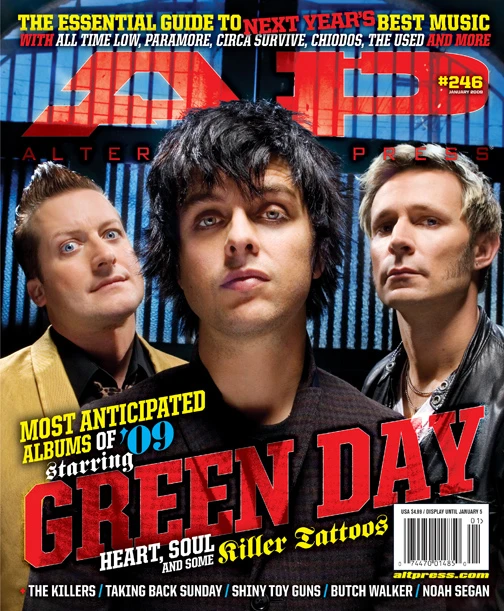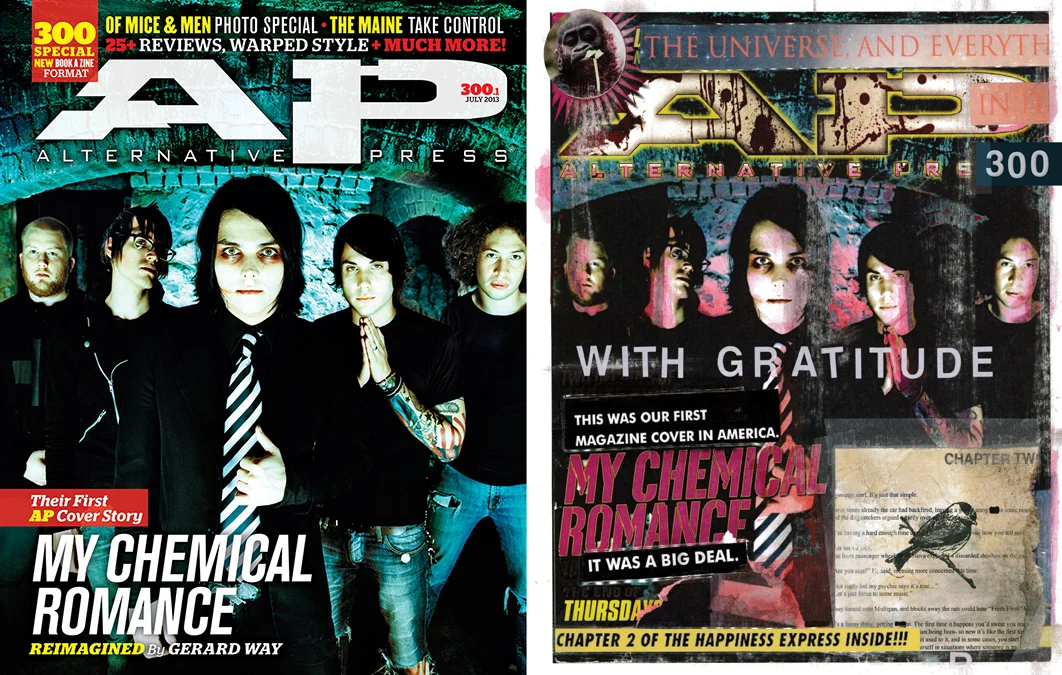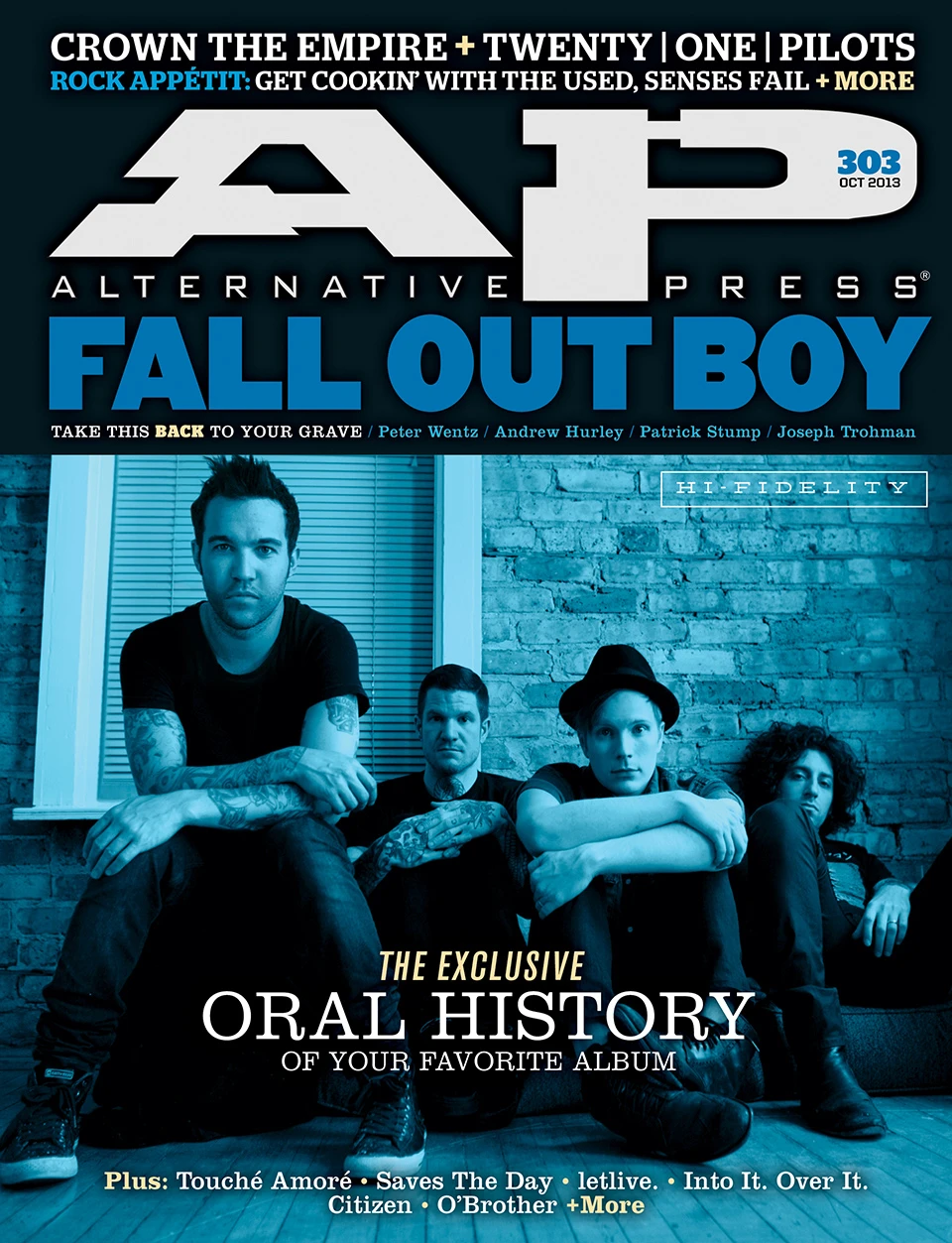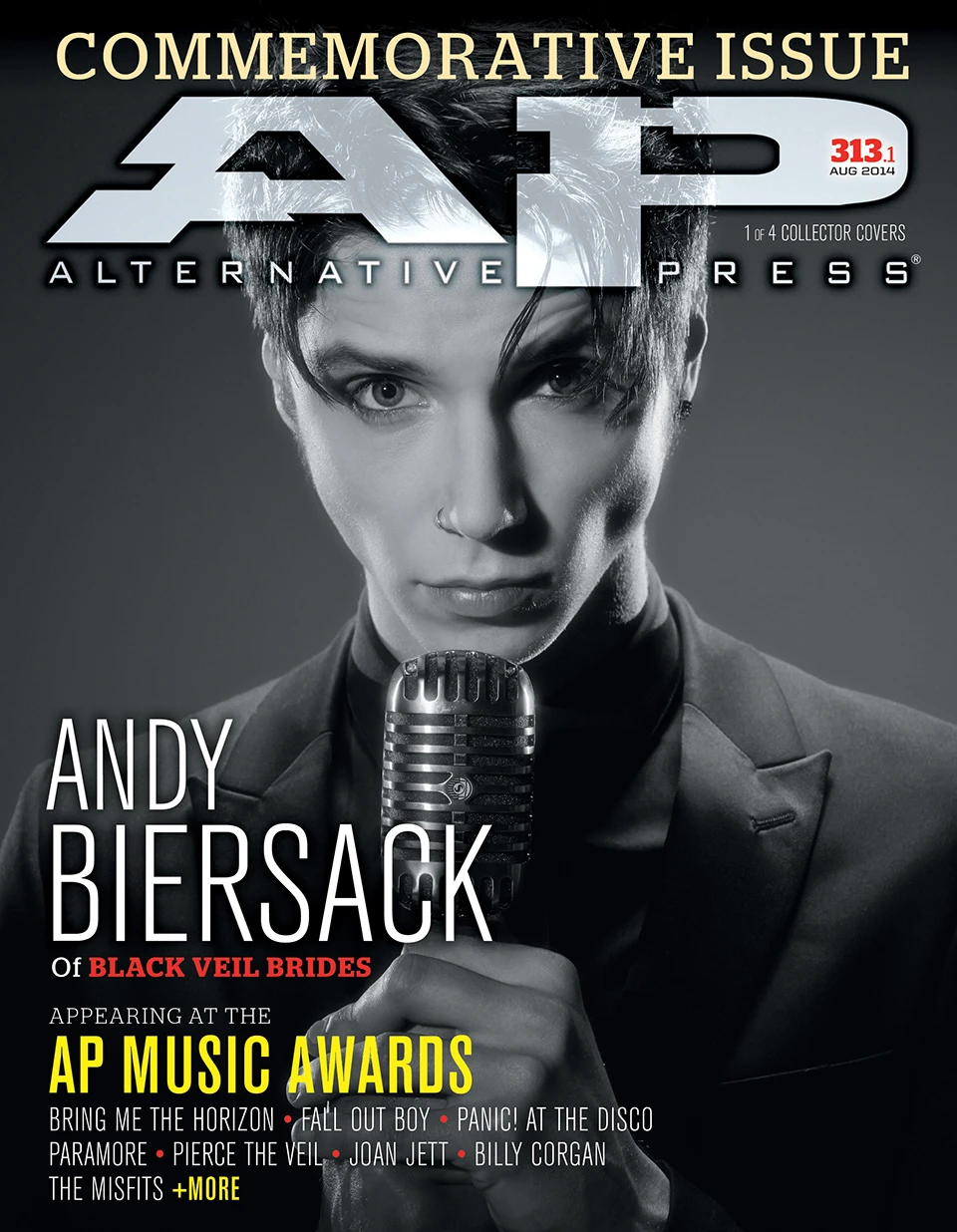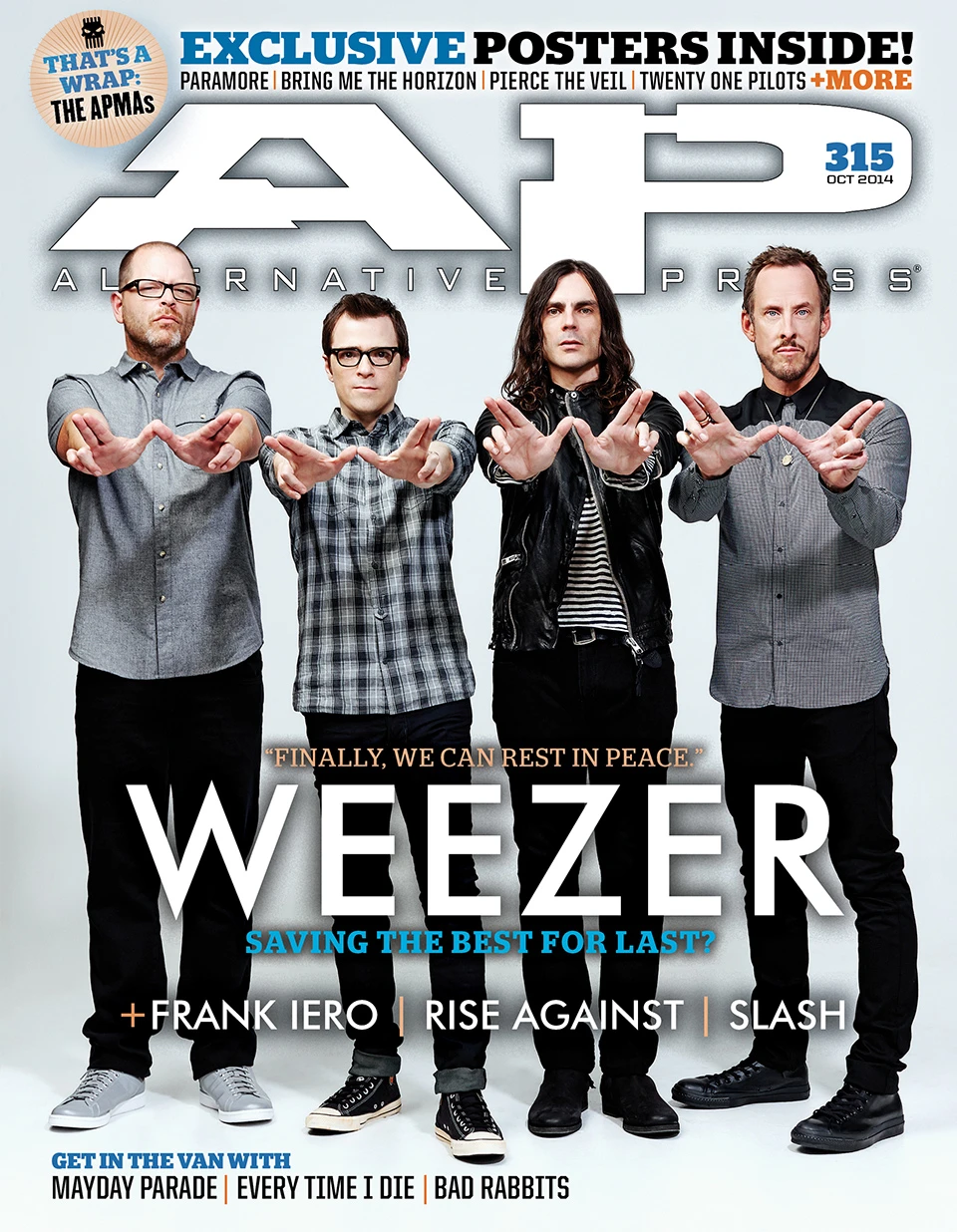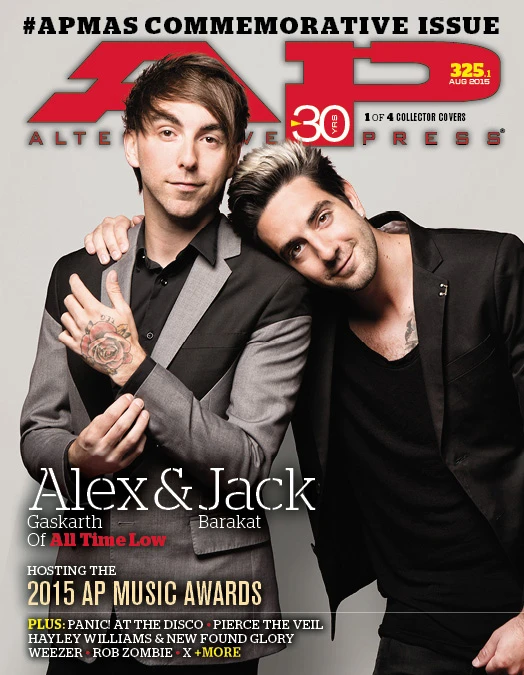Alternative Press began as a photocopied fanzine in Cleveland in 1985.
Three decades later it is still in print, defying the widespread death of independent music magazines while also embracing the digital realm.
Tomorrow, the magazine will host the second annual Journeys Alternative Press Music Awards in Cleveland, a celebration of alt youth culture that will feature performances by artists like DMC of Run DMC and Weezer, and honor icons including Rob Zombie and punk pioneers X. At the same time, the Rock and Roll Hall of Fame in Cleveland will debut an exhibit celebrating 30 years of the publication. With a current circulation of 225,000 (including subscription numbers that will hit 70,000 after a bump from this summer’s Warped Tour), Alternative Press is the number two music magazine in the country behind Rolling Stone, with steady sales, while altpress.com attracts 2.3 million unique visits per month.
Founder Mike Shea says the magazine’s endurance comes from consistently listening to its young audience even through the industry’s shakiest times. Shea talked to Fast Company about the power of fandom, the value of kids’ appreciation for music history, and what it means to be “alternative” in 2015.
Alternative Press has succeeded at keeping the same young demographic of reader even as you and the original artists you covered have gotten older. How do you think you’ve accomplished this?
When you’re an entertainment editor or even probably a political editor or something like that, your main years of putting in the midnight hours, going crazy on it, a lot of the stuff that you’re writing about at that point really becomes very personal to you. I think the trick when you’re an editor is to realize that clocks move forward and you have to take a step back and put them in the background a little bit and make sure that you’re trying to stay on top of what’s going on now. A lot of times that includes working with new generations of writers or other contributing editors—you have to be open to it. I think we’ve all, in this journalism industry, seen those editors and writers that just don’t want to stop. They just believe that if they maybe write more about something then more people will like it, and that’s not necessarily the case.
I mean, there’s a reason why they call it pop culture, right? Times change. I think the key is we’ve had to consistently step back and open our eyes and our ears and listen to the readers. The readers are usually the first people to tell us we’re screwed up. They’ll tell us, “why are you still writing about them,” or “no one cares,” or “where’s my favorite band?” If enough of them say it, then you get the idea.
At the same time, AP’s identity has been fairly consistent—there’s definitely a lineage of artists that you’re sticking with. Have there been any revivals or similar that have helped along the way, such as just when you thought the main music that you’ve covered is not as popular anymore, then something came along to revive it?
There’s a 90s revival that’s going on. A lot of the kids that are teenagers now and early twentysomethings were born in the 90s so they remember Third Eye Blind, they remember Korn and all that. There was that time period in the 2000s where those bands weren’t so hot. For us, it’s been fun because we can actually talk about our history, and our readers today, whether online or print, want to know about them. We can post on our website about nu-metal bands from the late 90s or the 2000s that, maybe five or seven years ago, kids wouldn’t care about, but now, they’re some of our top posts.
You’re still in print, which a lot of publications have had to move away from. What do you think are some of the secrets or things that have helped you stay successful there?
Our demographic is really the big thing because the reason why you don’t really see a lot of entertainment magazines these days is that there’s nothing more broke than a dude in his 20s. Your enthusiasm for bands or movies or something like that changes because now you have to pay for your own health insurance, you have rent, and you want to go out on a date Friday night, so are you going to go buy a magazine or are you going to get a nice glass of wine for your date? Priorities change, but when you’re a teenager and in college, actors, actresses, musicians, all the types of artists are everything to you. Your favorite bands end up being on your car, on your notebook and on your phone, and those really are who you are.
For us, that’s what’s insulated us to a greater extent from ending up like Spin and a lot of the other music magazines, because it’s still a crowd for whom there’s a lot of romanticism attached to print. Teenagers today still . . . it’s a rite of passage to a certain extent to sit on your bed with your friend and flip through pages looking at singers and stuff, and reading about your favorite band. It’s not so romanticized when you do that with an iPad. Plus the fact that you can rip pictures out, put them on your wall.
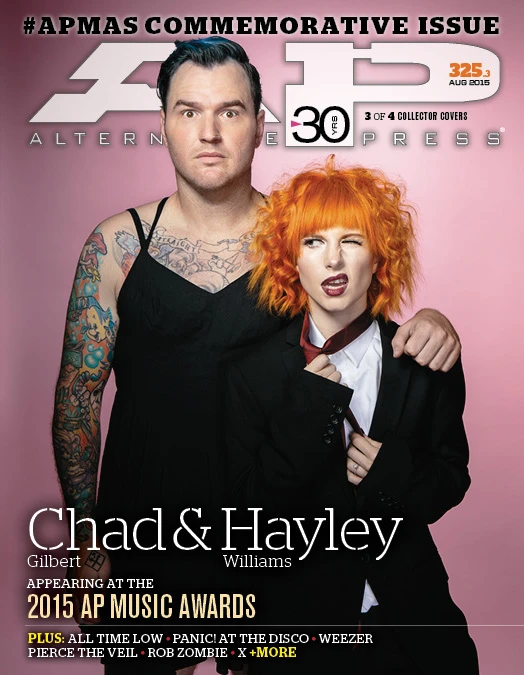
Even though you’re still serving a young audience, is there any way that your readership has changed in demographics or in interests?
For our fans, as we were going through all of our archives for our 30th anniversary, and for the Rock Hall Exhibit that they’re doing on us, I was pulling out a lot of old reader surveys from the early 90s and looking at the results, and they’re pretty much spot on. Same thing, 18 to 24 demo but a little bit younger now. I think that’s because of what the Internet has done. It’s allowed kids to go to indie record stores without looking up from their phone, so to speak. To discover music is a lot faster and easier these days.
It’s more high schoolers than it used to be, but we’re pretty much still like high school and early college, and they’re suburban kids. Print is more of a female audience and online is more of a male audience.
Do you have any idea why that might be?
I think guys would just rather read things for free, and I think for young women, there’s more of a fanaticism there and a dedication. People always say that their kids don’t read these days. I beg to differ. If you do the 8,000-word cover story on their favorite band, they’ll read it. It’s about what they want to read.
How do you think the definition of “alternative,” which is your namesake, has changed in 30 years since you have been in print?
There will always be a suburban kid out there that feels alienated and different than everyone else. Whether or not they think that The Used or Twenty One Pilots is their favorite band that speaks differently, or if they feel that Metallica or Motionless In White is going to do that for them, or that it’s going to be somebody more pop, like Fall Out Boy or Paramore. There’s always going to be some kid out there that’s just going to be slightly different. That has never changed from when we started in 85 to now. Just the bands changed, sounds changed, so we went through the post-punk era and then we went through industrial and grunge, and then we went through electronica, nu-metal. There was even swing retro thing that came in 97. There’s always going to be this market.
When I started AP, it wasn’t about alternative music. We were starting it as a fanzine in Cleveland and we wanted to be the alternative to the local alt weekly here and the local daily paper. That was where the name came from, “alternative music” didn’t even come around for another few years until MTV and Spin started using it. We just rode that wave, I guess.
What inspired the creation of the awards last year? Why did you think it was time to plant that flag, and what did you learn from it that you’re applying to this year?
We wanted to have a special day for our whole community to come together and just party and have fun because we didn’t really have that.
Josh Bernstein had just left Revolver and did the Golden Gods [metal awards], and [APMAs co-producer and Warped Tour founder] Kevin Lyman introduced us and then it just worked out perfectly from there. Josh brought all of his experience over to the show, and it was the people at AXS TV that connected us with the Contemporary Youth Orchestra, a 100-piece youth orchestra playing classical music, and so now they were up there and accompanying Fall Out Boy.
We had the Fall Out Boy and Paramore tour rerouted to come through Cleveland, and then the Panic! At The Disco tour came from Kansas City overnight. We had a huge melting pot of everybody in our community. We had no idea it was going to turn this big. I mean, trending on Twitter for 24 hours and number one worldwide.
The big change we did this year is we took it out of a park and brought it inside, because two days prior to our show last year, it was raining and we were petrified, absolutely petrified. The show got bigger this year, and we just cannot take that risk.
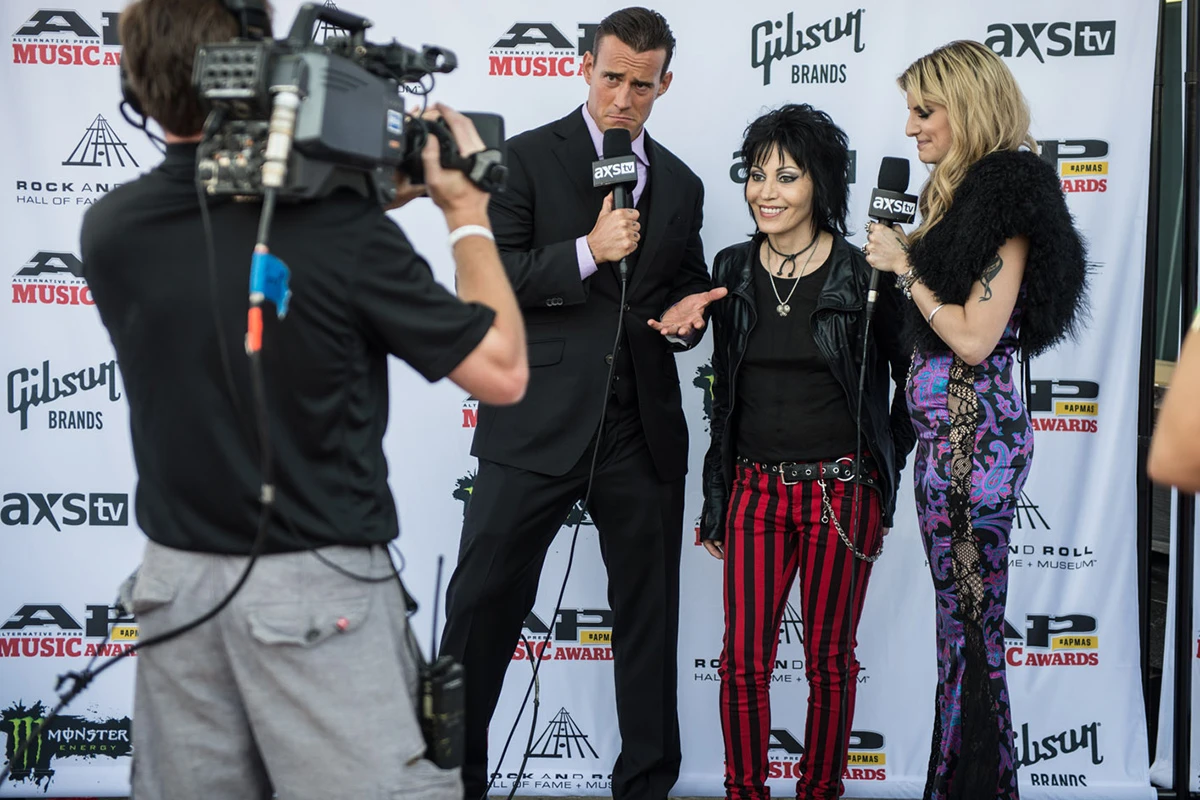
Was there ever a time in your history where you thought it was over, you thought you’d have to shut down or change drastically, and then something came along and it picked up?
There’s no doubt, when you’re independently financed. You go through the 92-93 recession, and then you go through consolidation at newsstands, which were not good for small publishers, and then you go through the huge recession that we just went through. And then there’s the Internet and dollars moving from print to web, now mobile.
You’re thinking that the shoe is going to drop. It was a lot of sweat and there’s a lot of staff over the years that got us to this point. Here we are now. We just launched in Target for the first time in January, finally. We got into Target and we’re selling really well. I was really afraid because it’s really easy when you’re reading a lot of the trade newsletters saying print’s dying, everything’s decreasing, you might as well just go kill yourself. You come in to work in the wrong mood and you read one of those that day, and you just feel like, “Why am I doing this?” But then all of a sudden something like that happens, and you launch into Target and your sales are great, and I’m like, “Yes! My theory was right.” Really, it’s about just creating a better product, maybe a little bit more expensive, and sticking with the demo, because these kids still treat entertainment differently than a 28-year-old does.
Recognize your company's culture of innovation by applying to this year's Best Workplaces for Innovators Awards before the extended deadline, April 12.
